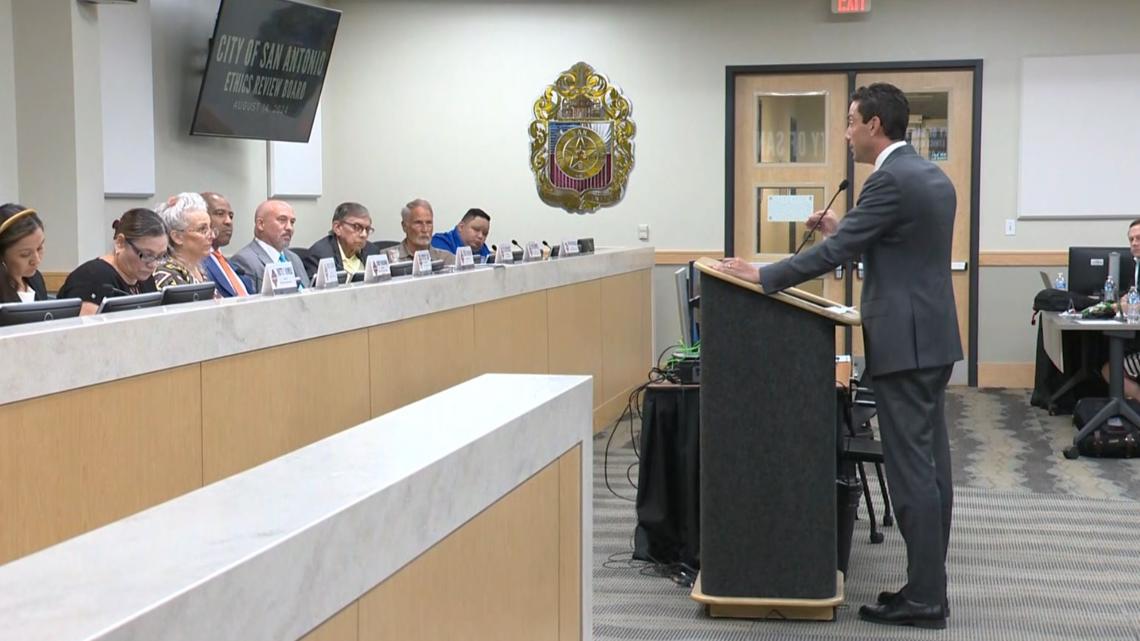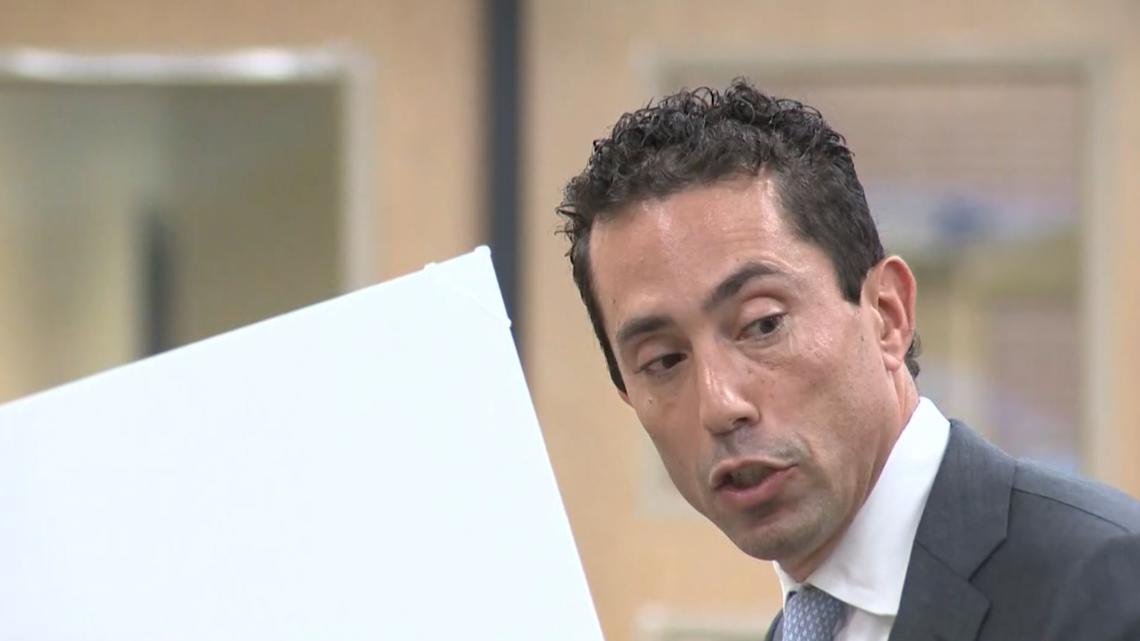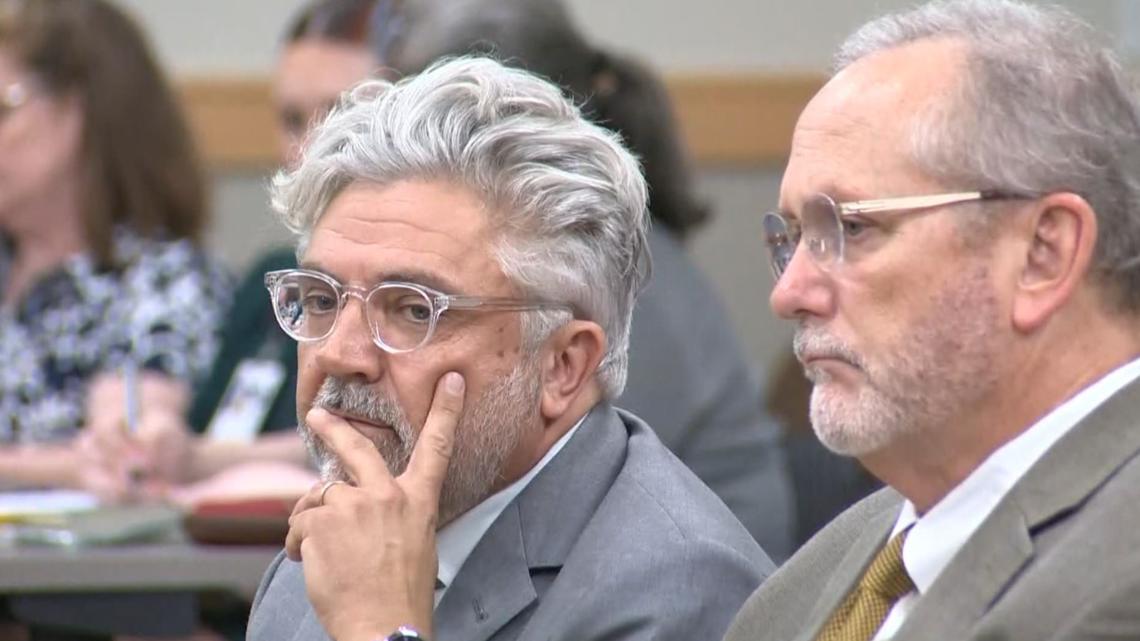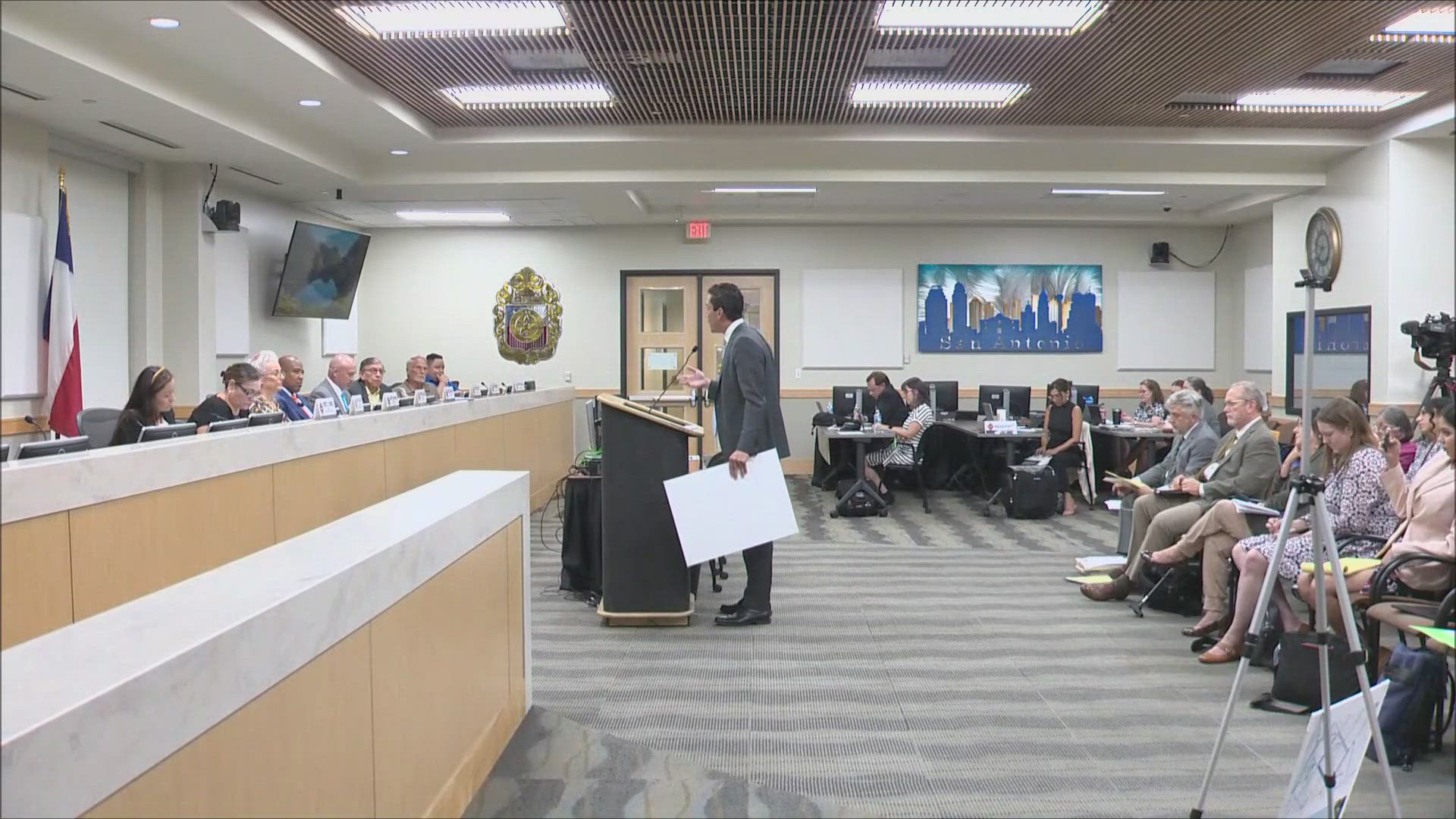SAN ANTONIO — Despite repeatedly saying that he was acting as a "concerned citizen" and not a city leader trying to leverage his position, Councilman Marc Whyte was found to have violated city ethics code when he texted the chief of police in April about a private family matter unfolding nearby in which he said he thought a child may have been in danger.
The Ethics Review Board issued its ruling late Wednesday night, saying Whyte violated three sections of the ethics code pertaining to unfair advancement of private interest, prestige of office and use of city resources/personnel for private interests. It also voted to issue a letter of reprimand against Whyte and refer him to ethics training.
One member of the board voted against on all three counts. The board in the end didn't say there was a "preponderance of evidence" that Whyte violated a fourth section of the ethics code regarding conflicts of interest.
Whyte, echoing what he has said before, said he would "do what I did all over again." He asserted it was his legal expectation to contact San Antonio Police Chief William McManus and later Sheriff Javier Salazar after receiving concerned messages from his wife about a situation that unfolded at the King William home of Martin Phipps, a local attorney who said he taught Whyte at St. Mary's, involving Phipps' teen daughter.
"Cops are at Martin's house in king William (sic)," read one of those texts from Whyte's wife on the evening of April 26, when the District 10 City Council member was attending a large gathering at a nearby home. Phipps' ex-wife had initially called 911 and messaged Lorien Whyte.
Additional texts from Whyte's wife to the councilman read: "We may need to get police chief involved. Martin has gates and everything locked and cops can't get in. Kids are hiding in back house." Subsequent messages from Lorien Whyte, which were shared at Wednesday's meeting, contained more urgent language: "Call me now please. Please call me."




Whyte later texted McManus, asking the police chief to call him. By this point, a police officer had already been dispatched to Phipps' residence.
When McManus didn't respond, Whyte showed the messages to fellow Councilman Manny Pelaez. Both then approached Sheriff Javier Salazar, who was also at the event.
Salazar then summoned an off-duty sheriff's deputy working the event as private security to go to Phipps' home. In a police report, SAPD said Phipps' teen daughter told police her father "picked her up by the arms and started shaking her," but that she wasn't injured. Police said they eventually took her back into the home and told her to contact 911 if she ever felt she was in danger.
In an ethics complaint filed May 21, Phipps accused Whyte of having "used his authority as a City Councilman and special access to law enforcement in an attempt to remove my 13-year-old daughter without legitimate inquiry or investigation of the facts."
Whyte on Wednesday pushed back against those claims, emphasizing his only concern was "trying to get information for myself that the child was OK." Asked why he didn't call 911 before texting McManus, he said he wanted to act as quickly as he could.
“I never asked SAPD to do anything. I didn’t ask them, I didn’t order them, I didn’t do anything," he said. "I texted the chief the information that my wife had sent me, and I asked him to call me. The exact same with the sheriff.”
Whyte never denied his communicating with McManus and Salazar. But in a hearing that took on the tenor of a trial, he instead equated his actions to those that any community member would have done if they had McManus' direct line.
That became a sticking point with the board, which questioned Whyte's claim that he didn't have special privilege in the form of the police chief's cell phone number. He said McManus, who wasn't present at the meeting, often gave his number out freely to San Antonians at community events.
As if to interrogate that point, a board member took the informal step of asking those in the room, of which there were about 35, how many had the police chief's number. About a third of the hearing attendees raised their hands.


An outside attorney the board enlisted to review and present evidence in the case emphasized the need for Ethics Review Board members to determine whether Whyte acted "knowingly, or with knowledge, with respect to the nature of their conduct."
"You have to know what you're doing," the counsel said, providing guidance to the board. "You don't have to know what you're doing is illegal."
Phipps attended the meeting, and at times became visibly emotional as he tried to make his case for why Whyte should receive a reprimand. He expressed concern over how the events of April 26 and their fallout have put his family in the public eye.
"It’s very difficult to stand – I know this – to stand and try to do what you think is right without what comes after that," he told the board in his opening statement. "And I want my children to be proud of that. What do we want from you? It’s the hope that the truth comes out.”
The attorney later accused Whyte and Pelaez, whom Whyte called upon as a witness before the board, of trying to "disparage my name with nothing."
"I don't have Chief McManus' phone number," he later said, in an apparent indirect response to Whyte, before pointing to a text message Whyte sent sent to the police head later that night reading: "I can't believe your guys left."
Phipps used that message to try and build his case that Whyte was trying to influence a particular outcome.
Whyte tried to defend himself by saying his decisions didn't amount to "official action" and that neither he nor his wife stood to gain anything from their involvement. He also asserted he didn't have an upper hand in the situation through means that anyone else couldn't have lawfully had for themselves.
The hearing at one point momentarily delved into personal history when Phipps said Whyte was not only a former student of his at St. Mary's Law School, but also, briefly, a former employee. Phipps said he hadn't spoken to Whyte since that time.
Whyte later accused Phipps of, through his complaint, trying to attack the council member and accusing him of being intoxicated on the night of April 26.
"Just the fact that you would put that in that filing – an irrelevant line like that – shows you how this was designed for revenge and to hurt me," the council member said. "And it succeeded."
A short while later, after convening behind closed doors in executive session, the Ethics Review Board re-emerged to give its ruling. They said a final written opinion would be issued no later than August 19.
In a statement to KENS 5, Whyte said the board's decision "has the potential to be dangerous," and doubled down that he would do it all over again.
"When anyone has a reasonable suspicion that a child is in danger they should immediately take whatever action is necessary to ensure the child’s safety," his statement read. "I sincerely hope this decision does not cause any of our citizens to hesitate to call the authorities if they have a reasonable belief that domestic violence is taking place."

